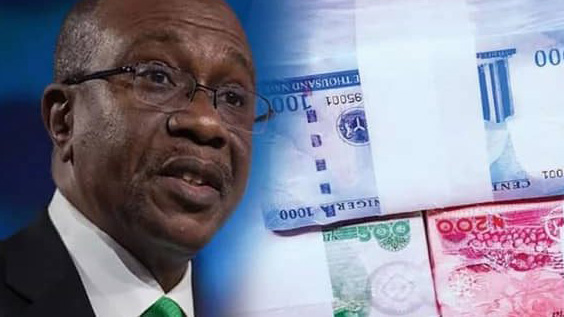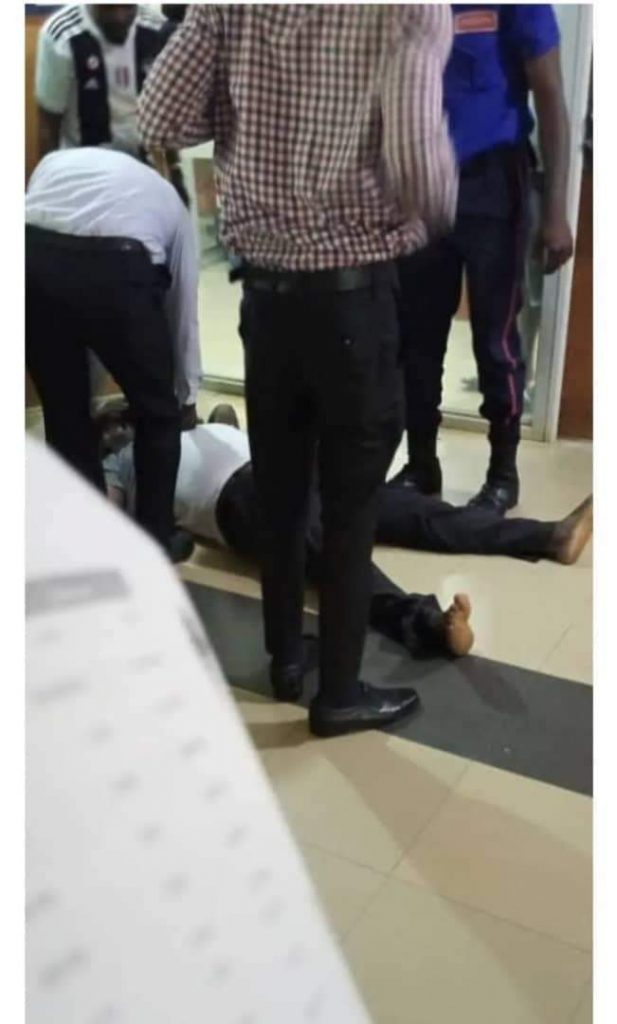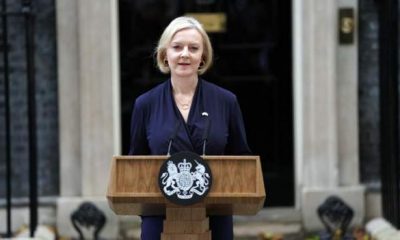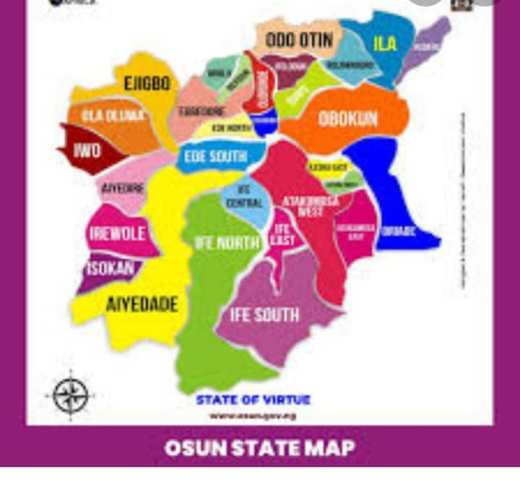Economy
Top 10 African countries with the highest fuel prices in September compared to August
Published
1 year agoon

The world, since the start of the year has experienced a rollercoaster of economic complications. These developments have a wide range of implications on everyday consumers. Fluctuating inflation rates are a regular source of public concern and controversy and can be attributed to a variety of factors, including geopolitical tensions, supply and demand dynamics, amongst other factors.
The African economy, like other regions has been vulnerable to said variables which have been beneficial or detrimental to the advancement of the continent. One of these factors is the cost of energy, which typically has a big impact on a lot of industries. As countries across Africa seek sustainable growth, the challenge of managing rising fuel prices presents a complex conundrum that requires rigorous research and innovative solutions.
With that said, it is important to note that different regions experience different costs of energy, and while that might seem like a simple fact, said regions also have different fiscal realities that could constitute a problem to the country’s overarching economy.
Simply put, some of Africa’s emerging economies are not resilient enough to survive the economic ripple effects of increased energy costs, making selling gasoline at an average price appear to be highly expensive. A number of African nations sell fuel for less than the worldwide average price of $1.33 per liter, and yet still bear heavy brunt of rising fuel cost.
Recent reports claim that the sub-continent of East Africa, particularly Kenya and Tanzania is currently struggling with rising gasoline prices. In West Africa, Nigeria, which just abandoned its expensive fuel subsidy scheme, is also suffering from the effects of increased gasoline prices, despite still boasting one of the world’s lowest fuel prices.
Despite this, a number of African countries, ten of which are on the list, sell petroleum at prices higher than the world average.
The ten African nations with the highest fuel prices are shown below, against their last month’s figures. The list is courtesy of GlobalPetrolPrices.com, a platform that updates fuel prices across the globe daily.
Rank Country Fuel Price/liter(Sept) Global rank(Sept) Fuel price/liter (Aug) Global rank (Aug)
1. Central Africa Republic $1.798 35th $1.841 27th
2. Malawi $1.648 47th $1.659 41st
3. Senegal $1.618 48th $1.657 44th
4. Zimbabwe $1.610 49th $1.570 49th
5. Seychelles $1.586 51st $1.547 51st
6. Mauritius $1.512 58th $1.527 53rd
7. Cape Verde $1.508 59th $1.461 60th
8. Morocco $1.473 63rd $1.521 55th
9. Zambia $1.435 67th
10. Mali $1.416 69th
Chinedu Okafor is a Senior Reporter at Business Insider Africa with 5 years’ experience, creating profoundly engaging and insightful content.
You may like
Business
Currency Redesign: Emefiele Unperturbed As Nigerians Groan in Pains
Published
2 years agoon
February 4, 2023
The attempt by both the Federal Government and its financial regulatory agency, the Central bank of Nigeria (CBN) to re-engineered the flapping national currency, the #aira, and give it some strength against some perceived threats of saboteurs, at least internally, through redesign of the high brand notes of 200, 500, and 1,000 has ended in a frustrating fiasco. The move remained a scientific fiction, an idea that just refused to work. The failure, so monumental that has forced the President, Muhammadu Buhari out of his cocoon to promised Nigerians that “I will revert to the CBN and the Minting Company. There will be a decision one way or the other in the remaining seven days of the 10-day extension,”
From the commencement of the rolling out of the new redesigned notes on 15 December 2022, till its final curtain drawing on 31 January 2023, it was evidently clear that the policy was meant to further pauperised the struggling masses. Basic understanding of the social perception of the Nigerian masses should tell anyone driving such a hugely sensitive policy that by a week to the deadline of its expiration, the old notes would be loathed in daily market transactions. This is a social system where an average market trader still have a lot of reservations for the banking system, a system where the drive for a cashless system is yet to take firm root. Therefore, the sudden threat of withdrawal of the old notes without adequate flooding of the cash system with the new notes is bound to fail, and it did spectacularly.
Already, rumours are rife within the polity that the CBN Governor might have played a fast game on the President, Muhammadu Buhari to get his approval to proceed with the policy. He was said to have presented a clean policy to the President, but went ahead to do the opposite, thus inflicting untold pains and hardship on the already traumatised citizenry.
Therefore, Nigerians were given a rude awakening between the weekend preceding the end of January and the first week of February of the year. From the backyard of Ikeja, the State capital of the most cosmopolitan Lagos State, to highbrow Ikoyi, Victoria Island and Lekki Peninsula area, from the back waters area of Badagry down to the lagoon front of Epe and Ikorodu, then back to the urban mainland areas of Surulere and Yaba, suddenly banks’ Automated Teller Machine (ATM) suddenly started returning “unable to dispense cash” message. From the commercial hub of the Northern Nigeria, Kano, Kaduna and the Federal Capital territory, Abuja, came the same reports. The ATM machines were not dispensing cash. And inside the banking halls, the cashiers simply folded their hands akimbo, watching in deep askance, unable to answer the deluge of question pouring in from exasperated customers.
A woman, in a viral video, took a branch of a commercial bank in Iyana Ipaja, a suburb back yard of Ikeja, by storm. She practically threw herself down half naked in protest. She wanted to withdraw cash to feed the family, but was unable, both at the ATM and on the counter. Entire stretch of Lagos State was in dire times.
Another man in Delta state was did not engage in any drama. He simply slumped and lost his life waiting on a queue inside a bank in Asaba.
Man Slumps, Dies Inside Delta Bank
A bank customer has slumped and died after standing in a queue for long hours at a bank in Agbor, Delta State. According to the News Agency of Nigeria (NAN) reports on Friday, the yet-to-be-identified man died after waiting for hours to collect his Automated Teller Machine card at the bank in Ika South Local Government Area, Delta State.
Confirming his death, the state’s Police Public Relations Officer, DSP Bright Edafe, said, “He was not trying to withdraw cash; he came to collect his ATM card.”
In the streets of all major towns, the story was not different. People wanted to buy, but have no cash. Sellers most unwilling to sell on credit. And to worsen the situation the ubiquitous Point of Sales agents dispensing cash, turned to semi gods. Normally, a withdrawal of five thousand naira attracts a charges of one hundred naira, while ten thousand naira attracts a charges of two hundred naira, but suddenly they started demanding irrational charges of between five hundred naira to one thousand naira on five thousand and ten thousand naira. They even restricted maximum withdrawal to five thousand naira only. The pains in the system were unimaginable.
The story was no less dire, according to reports www.focusmagazineonline.com obtained from other states across the country. in Kano, the situation took a political colouration when the Governor of the State, Dr. Umar Ganduje protested to the President, Federal Republic of Nigeria, to reconsider his scheduled visit to the State, should the situation remain the same. President Muhammadu Buhari was scheduled to visit the State to commission some projects on Wednesday, 26 January.
A leading presidential candidate, Asiwaju Bola Ahmed Tinubu of the All Progressives Congress (APC) was the first political gladiator to bemoaned the situation. At a campaign rally at the popular Moshood Abiola International Stadium, Abeokuta, Ogun State, he complained of the scarcity of cash n the system amidst the poorly thought out currency redesign. He sensed political sabotage behind the policy at this period. Few days later, his Peoples Democratic Party’s (PDP) counterpart, Alhaji Atiku Abubakar re-echoed the sentiment. He wants a review of the policy.
Despite the hues and cries by the citizens, the Governor of the Central Bank of Nigeria (CBN), Mr. Godwin Emefiele played the ostriches’ game. He first went on an annual leave, leaving the implementation of the policy in the hands of a Deputy that claimed she ‘did not know anything about’.
The lower chamber of the National Assembly was peeved that the CBN did not implement the provisions of Section 8 of the CBN Act before introducing the policy. The Act has stipulated that the Apex bank must briefed the House before embarking in a major policy.
The House now wanted the CBN Governor to come and explain the policy to them, and probably removed the Twenty Thousand naira withdrawal limit cap, but after spurning the invitations several times, the House decided to summoned the Deputy Governor of the Apex bank in charge of Financial System Stability (FSS), Ms. Aishah Ahmad.
And after two weeks of back and forth, the Central Bank of Nigeria finally briefed the House of Representatives on the redesigning of naira notes and the cash withdrawal limit policy.
The Deputy Governor, Mrs Aishah Ahmad appeared before the lawmakers to offer the perspective of the bank on the policies at the same time responded to concerns of the lawmakers to the best of her ability.
During the appearance before the Houser of Representatives, Ahmad declared categorically that it was only Emefiele that can answer questions on the policy, as she was not aware of anything about it.
Before the haphazardly extension of the deadline for the termination of the life of the old naira notes in denominations of the higher end of the naira notes, early on Sunday (29 January), economic activities had almost grounded to a halt in virtually all corners of the country. between Ikeja, Surulere, Lagos Island, no single banks; ATM machine was dispensing. To further compound the suffering, banks were not paying across the counter.
And by tail end of the week, most sellers were wary to collect the old notes, thereby throwing many homes into sudden panic.
A phone call to Ilesha, Oshogbo, Abuja, Aba and Kaduna by www.focusmagazineonline.com returned the same scenario. Neither the banks’ ATM nor the ubiquitous POS vendors are dispensing funds. Few POS agents that were dispensing funds were doing so at cut-throat rates.
Even with the extension till 10 February, many areas in Lagos, Ogun, Ondo, Osun, Kaduna, Kano and Aba States are still in utter confusion. Same goes for the Federal Capital Territory, Abuja.
Not few distrusts Godwin Emefiele when he announced on Wednesday 25 October, 2022, that some of the local legal tender, Naira, particularly, the high end notes of 200, 500, and 1,000 notes, would be redesigned. His remarks left many watcher unexcited and confused. To further compound the mixed feelings of the people, he announced a daily withdrawal limit of Twenty Thousand Naira for individual account holders.
The move was greeted wit cold reception. Many analysts decried the move, particularly, at the time a general elections are fast approaching. But in these, Emefiele played the tin god. He remained adamant, insisting that the policy has come to stay. When the heat was getting much, he disappeared suddenly from the radar. It was later that the bank’s Director of Corporate Communications, Osita Nwanisobi told the public that the Governor was only away on an annual leave. He was to resurfaced by the tail end of the year.
Frustrated, a former Minister of Aviation, Mr. Femi Fani-Kayode, hits out at Emefiele. He said: “Emefiele has weaponised the CBN and is an enemy of democracy. The policy of cancelling old notes must be totally cancelled until after the election and then done lawfully”.
He continued his outburst against the Governor and the policy, “he wants to cause a crisis, provoke a people’s uprising, derail our democracy and pave the way for an Interim National Government (ING). He has no plans to release enough new naira notes any time soon. He wants to starve the people of cash and drive them to rage out of frustration”
“This is not about politics, but about stoking up protest and revolution. This is subversion and destabilization. He must be stopped caged!”, the former Minister roared in anger.
The Central Bank Governor, had stated that the move to introduce newly designed notes became imperative following the abnormalities bedevilling Nigerian financial, monetary and security systems. The circulation of the new designs, he gleefully announced, will begin on December 15, 2022, and by January 31, 2023, old notes shall cease to be legal tender.
The CBN Governor, Emefiele had hinged his arguments on four planks. According to him, the CBN decided to redesign the naira notes, based on the need to address the issue of individuals who have made currency fraud their main source of income. People who have hidden money they have stolen, for instance, would either find a way to change it by taking the money out or would not need it given the change in the value of the Naira.
He also claimed that the currency change also aims to deal a fatal blow to the growing kidnapping and ransom industry.
He spoke further that the change in the notes is also said to aid in lowering the rate of inflation.
Finally, he said the change in the Naira notes is also intended to control the amount of money in circulation.
Plausible as the four reasons given for the redesign, the implementation left Nigerian floundering in abyss. Frustrated, many claimed it was meant to inflict misery and suffering on the poor masses.
However, by midday, Thursday, (2 February) the CBN said it has directed commercial banks to start paying the new naira notes to customers over-the-counter in the banking halls. This new development was confirmed in a statement by the bank’s Director of Corporate Communications, Nwanisobi.
The apex bank assured Nigerians that the queues at Automated Teller Machine stands will end soon while directing banks to pay new notes over-the-counter, which was previously banned.
Most frustratingly, while the cash crunch persists, the various online funds transfer and payment apps of the virtually all the commercial banks were working erratically. Effecting payment online became a major issues.
Ms Deola Saggir, a civil servant was at a pharmacy in Ikeja on Monday, 30 January. She picked some drugs for her ailing husband and offered to pay through her ATM card. All processes done, and payment alert received, yet the fund was not credited to the pharmacy’s account. After waiting for almost two hours, she dropped the drugs and left in deep anger. All efforts to trace the funds are yet to be successful as at the time of filling this report.
Many people spoken to express disgusts in several unsuccessful funds transfer attempts via the banks’ apps.
In border towns of Sokoto, Zamfara, Kano, Jigawa and Katsina states, reports have it that traders simply turned to the use of the francophone currency CFA in trading activities, shunning the naira.
The Apex bank spoke through the Director of Corporate Communications, Nwanisobi who said in a statement: “We have equally noticed the queues at Automated Teller Machines across the country and an upward trend in the cases of people stocking and aggregating the newly introduced banknotes they serially obtain from ATMs for reasons best known to them.
“Also worrisome are the reported cases of unregistered persons and non-bank officials swapping banknotes for members of the public, purportedly on behalf of the CBN”.
He promised the nation that something would done to stem the tide urgently.
When on Wednesday, October 26, 2022, Nigeria’s apex bank, announced that it will redesign some new naira notes, it was not anything new to Nigerians, as the country have a long history of such exercise.
Nigeria have a rather long history of currency introduction and redesign from independence in 1960.
Historically, during the pre-colonial era, different cultures used a variety of items as means of exchange. These included cowries, manilas, beads, bottles and salt amongst others.
The first major currency issue in Nigeria was undertaken following the colonial ordinance of 1880 which introduced the Shillings and Pence as the legal tender currency in British West Africa. The units of coins managed by the Bank of England were one shilling, one penny, 1/2 penny and 1/10 penny and were distributed by a private bank, the Bank for British West Africa till 1912.
From 1912 to 1959, the West African Currency Board (WACB) issued the first set of banknotes (insert hyperlink) and coins in Nigeria, Ghana, Sierra Leone and the Gambia. The highest banknote denomination was one pound, while the one shilling coin was the highest coin denomination.
On 1st July, 1959 the Central Bank of Nigeria (CBN) issued Nigerian currency banknotes, while the WACB-issued banknotes and coins were withdrawn. It was not until 1st July, 1962 that the currency was changed to reflect the country’s republican status. The banknotes which bore the inscription, ’FEDERATION OF NIGERIA‘, now had, ‘FEDERAL REPUBLIC OF NIGERIA’, inscribed at the top. The notes were again changed in 1968 following the misuse of the currency banknotes during the civil war.
Sequel to the decision by the government to change from the metric to decimal, the name of the Nigerian currency was changed in January, 1973. The major unit of currency which used to be £1 ceased to exist and the one naira which was equivalent to ten shillings became the major unit, while the minor unit was called the kobo; hundred of which made one naira.
On 11th February 1977, a new banknote with the value of twenty naira (₦20) was issued. It was the highest denomination introduced at the time as a result of the growth of the economy; the preference for cash transactions and the need for convenience.

The banknote was the first in Nigeria to bear the portrait of a prominent Nigerian citizen, the late Head of State, General Murtala Ramat Muhammed (1938-1976) who was the torch bearer of the Nigerian Revolution in July, 1975. The note was issued on the 1st anniversary of his assassination as a fitting tribute to a most illustrious son of Nigeria. He was declared a national hero on 1st October 1978.
On 2nd July, 1979, new currency banknotes of three denominations, namely ₦1, ₦5 and ₦10 were introduced. These notes were of the same size i.e. 151 X 78 mm as the ₦20 note issued on 11th February, 1977. In order to facilitate identification, distinctive colours were used for the various denominations. The notes bore the portraits of three eminent Nigerians, who were declared national heroes on 1st October 1978. The engravings at the back of the notes reflected various cultural aspects of the country.
In April 1984, the colours of all the banknotes in circulation were changed with the exception of the 50 Kobo banknote to arrest the currency trafficking prevalent at the time. In 1991, the 50K and ₦1 were both coined.
In response to the expansion in economic activities and to facilitate an efficient payments system, the ₦100, ₦200, ₦500 and ₦1000 banknotes were introduced in December 1999, November 2000, April 2001 and October 2005 respectively.
On 28th February 2007, as part of the economic reforms, ₦20 was issued for the first time in a polymer substrate, while the ₦50, ₦10 and ₦5 banknotes; as well as ₦1 and 50K coins were reissued in new designs, and the ₦2 coin was introduced.
On 30th September 2009 the redesigned ₦50, ₦10 and ₦5 banknotes were converted to polymer substrate following the successful performance of the ₦20 (polymer) banknote. Thus, all lower denomination banknotes were now printed in the polymer substrate.
Finally, the CBN, as part of its contribution towards the celebration of the nation’s 50th anniversary of Nigeria’s Independence and 100 years of its existence as a nation, issued the ₦50 Commemorative polymer banknote on 29th September 2010; and the N100 Commemorative banknote on 19th December 2014 respectively.
When the heat became unbearable, the CBN Governor recanted and first extended the expiration of the old notes from its terminal date of 31 January to 10 February. He was later to remember that the Section 20 (3) of the CBN Act 2007 provides that the CBN should continued accepting the old notes until they are fully phased out of circulation.
On Wednesdday (2 February), Emefiele told Nigerians that they won’t lose the old notes after the February 10 extended deadline, the Governor of the Central Bank of Nigeria (CBN), Godwin Emiefele, who appeared before the House of Representatives ad hoc Committee, has confirmed.
The CBN Governor said while the old notes cease to be legal tenders after the expiration of the deadline, Nigerians can still take them to the bank for exchange of new notes or deposit the old notes in their accounts.
Section 20(3) of the CBN Act, 2007 provides that the Apex Bank should continue to accept the old notes until they are phased out of circulation.
“Section 20, subsection 3 of the CBN Act which says even after the old currency has lost its legal tender status all Banks are mandated to collect those monies”.
By Friday (3 February) there was palpable tension among the government circle. Mallam Nasir El Rufai, Governor of Kaduna State is not a man to shy from expressing his mind. He chided Emefiele on the shoddy implementation of the policy. He claimed that he has an information that a brother Governor collected five hundred million (#500) naira, he wondered why the bank officials could this wicked.
The northern Governors on the platform of the President’s party, APC, also met with the President Friday to deliberate on the policy. AT the end of the meeting, snippets emerged that the policy may undergo a major surgical operation.
Mallam Garba Shehu, President Buhari’s Senior Special Assistant on Media and Publicity issued a chastening press statement after the meeting. According to him, President Muhammadu Buhari has urged citizens to give him seven days to resolve the cash crunch that has become a problem across the country from the policy of the Central Bank of Nigeria to change high value Naira notes with new ones.
The President was speaking to the Progressive Governors Forum who came to the Presidential Villa to seek solutions to the cash crunch which they said was threatening the good records of the administration in transforming the economy.
President Buhari still insisted that the currency re-design will give a boost to the economy and provide long-term benefits while expressing doubts about the commitment of banks in particular to the success of the policy. “Some banks are inefficient and only concerned about themselves”, said the President, “even if a year is added, problems associated with selfishness and greed won’t go away.”
Garba claimed that the President had seen television reports about cash shortages and hardship to local businesses and ordinary people and gave assurances that the balance of seven of the 10-day extension will be used to crackdown on whatever stood in the way of successful implementation.
“I will revert to the CBN and the Minting Company. There will be a decision one way or the other in the remaining seven days of the 10-day extension,” the President assured.
The Governors told the President that, while they agreed that his decision on the renewal of currency was good and they are fully in support, its execution had been botched and their constituents were becoming increasingly upset.
They told the President that, as leaders of the government and party in their different states, they were becoming anxious about a slump in the economy and the series of elections that are coming. They requested the President to use his powers to direct the concurrent flourish of the new and old notes till the end of the year.
The President said when he considered giving the approval to the policy, he demanded an undertaking from the CBN that no new notes will be printed in a foreign country and they in turn gave him assurances that there was enough capacity, manpower and equipment to print the currency for local needs. He said he needed to go back to find out what was actually happening.
President Buhari told the Governors that, being closer to the people, he had heard their cries and will act in a way that there will be a solution.
www.focusmagazineonline.com (C2023)
Economy
CBN’s Change of Naira Shocks Nigerians, EFCC Hail Moves Clampdown on Currency Hoarders
Published
2 years agoon
October 27, 2022By
FocusMag
Afolayan Adebiyi
Despite receiving the news of the move by the Central Bank of Nigeria (CBN), to redesign the nation’s currency with mixed-feelings by Nigerians, the Economic and Financial Crimes Commission (EFCC), has come out strongly in support of the Apex bank’s move.
The anti-fraud agency Tuesday (26 October) applauded the move by the Apex bank to redesign and reissue higher denominations of the Nigerian Currency, the Naira, describing it as a “well-considered and timely response to the challenges of currency management which has negatively impacted the country’s monetary policy and security imperatives”
Speaking at a press briefing today, (26 October) the CBN Governor, Godwin Emefiele announced that the apex bank had obtained the approval of President Muhammadu Buhari to resign and issue new N200, N500 and N1000 notes that shall come into circulation by the 15th of December, 2022.
The news jostled not a few Nigerians when it hit the airwaves. Many expressed shock and total disbelief, pointing out that “such a move is not necessary at this point in time”.
A senior official of a first-generation bank told www.focusmagazinesoline.com in Lagos that “such a move failed to achieved its desired result in 1984, and may not again in 2022”.
He wondered why the penchant of President Muhammadu Buhari to redesigning and changing the Naira denomination each time he has the opportunity.
While the public groans, the Executive Chairman of the EFCC, Abdulrasheed Bawa described the move by the apex bank as “a well-considered and timely response” to the challenges of currency management which has negatively impacted the country’s monetary policy and security imperatives. “The EFCC, the CBN and some other regulators in the financial sector have worked closely in the recent past to determine how best to stabilize the country’s monetary policy environment. It is heart-warming that the CBN has demonstrated courage in taking this bold decision which I believe will bring sanity to the currency management situation in Nigeria”, he said.
He called on operators in the Nigerian financial services sector, especially deposit money banks and bureau de change operators to work within the guidelines provided by the Central Bank of Nigeria to ensure seamless withdrawal of the old currency. Bawa however warned that EFCC will monitor the process to ensure that unscrupulous players and currency speculators and their cohorts among the BDCs do not undermine the exercise. He also charged banks to be alive to their reporting obligations and not assist unscrupulous customers in laundering suspected proceeds of crimes through their system.
The EFCC boss further pointed out that the objectives which the CBN seeks to achieve with the redesign and reissue of the higher denomination Naira notes, were in tandem with the objectives of the Money Laundering Prevention Prohibition Act 2022, which criminalizes the conduct of cash transactions above a certain threshold.
According to Section 2 (1) of the Money Laundering Act 2022 “No person or body corporate shall, except in a transaction through a financial institution, make or accept cash payment of a sum exceeding— (a) N5,000,000 or its equivalent, in the case of an individual ; or (b) N10,000,000 or its equivalent, in the case of a body corporate.”
Optimistic that the new currency measure would further boost Nigerians’ embrace of banking culture and encourage the acceptance of cashless transactions, the EFCC Chairman recalled that the Commission had recently taken operational action against currency hoarders in major commercial cities of Nigeria.
“It is therefore pertinent to issue this stern warning to Bureau de Change operators to be wary of currency hoarders who would attempt to seize this opportunity to offload the currencies they had illegally stashed away.”
Noting that currency hoarders readily made their hoard available to criminal enterprise, the EFCC boss further stated that the Commission will spare no effort to bring to book any financial services operator who runs afoul of extant laws and regulations.
www.focusmagazinesoline.com (C2022)
Economy
CBN rescues Polaris Bank again, names new core investor
Published
2 years agoon
October 20, 2022By
FocusMag
By Afolayan Adebiyi
Polaris bank, yet again, has changed ownership. This is as the Central Bank of Nigeria (CBN) announced Thursday (20 October) the completion of the sale of the bank.
The Apex bank stated in a statement by its Director, Corporate Communications, Osita Nwanisobi Thursday that the bank now has a new core investor: Strategic Capital Investment Limited.
Nwanisobi disclosed that the deal was sealed with SCIL by the CBN and Asset Management Company of Nigeria.
He announced the completion of a Share Purchase Agreement for the acquisition of 100 per cent of the equity in Polaris Bank by SCIL.
He added: Polaris has been operating as a bridge bank since 2018 when the Central Bank of Nigeria intervened to revoke the licence of the former Skye Bank Plc and established Polaris Bank to assume its assets and certain liabilities.
As part of the CBN intervention, consideration bonds with a face value of N898 billion (future value of N1.305 trillion) was injected into the bridge bank through AMCON, to be repaid over a 25-year period. These actions were taken to prevent the imminent collapse of the bank, enable its stabilisation and recovery, protect depositors’ fund, prevent job losses and preserve systemic financial stability.
“SCIL has paid an upfront consideration of N50 billion to acquire 100% of the equity of Polaris Bank and has accepted the terms of the agreement which include the full repayment of the sum of N1.305 trillion, being the consideration bonds injected. The CBN thus received an immediate return for the value it has created in Polaris Bank during the stabilisation period, as well as ensuring that all funds originally provided to support the intervention are recovered.
“The sale was coordinated by a Divestment Committee comprising representatives of the CBN and AMCON, and advised by legal and financial consultants. The Committee conducted a sale process by ‘private treaty’, as provided in Section 34(5) of the AMCON Act to avoid negative speculations, retain value and preserve financial system stability. In the process, parties who had formally expressed an interest in acquiring Polaris Bank, subsequent to the CBN intervention in 2018, were invited to submit financial and technical proposals. Invitations to submit proposals were sent to 25 pre-qualified interested parties, out of which three (3) parties eventually submitted final purchase proposals following technical evaluation. All submissions were subject to a rigorous transaction process from which SCIL emerged as the preferred bidder having presented the most comprehensive technical/financial purchase proposal as well as the highest rated growth plans for Polaris Bank.”
In his brief comments on the transaction, the Governor of the CBN, Godwin Emefiele, said: “This sale marks the completion of a landmark intervention in a strategic institution in the Nigerian banking sector by the CBN and AMCON.
“We commend the outgoing board and management for their vital role since the bridge bank was established; in stabilising the Bank’s operations, its balance sheet and implementing strong governance structures to address the issues that led to the intervention.
“This process has provided the CBN with an unprecedented opportunity to recover its intervention funds in full and promote financial stability and inclusive growth.
“We wish SCIL well as they implement growth plans to build the bank from the strong foundations that have been established.”
www.focusmagazinesoline.com (C2022)
Trending
-

 Main Story2 years ago
Main Story2 years agoBREAKING: Liz Truss resigns as UK prime minister
-

 News3 years ago
News3 years agoSports: Messi misses out on Ballon d’or, Oshoala, Adeyemi in female, junior lists.
-

 Featured3 years ago
Featured3 years agoPolitics of Forced Congratulatory Messages Over Osun Guber Election
-

 Business2 years ago
Business2 years agoCurrency Redesign: Emefiele Unperturbed As Nigerians Groan in Pains
-

 Sports1 year ago
Sports1 year agoUCL format to change for 24/25 season: groups, knockout, league table
-

 Main Story1 year ago
Main Story1 year agoReal Reasons Makinde Refuses To Announce New Alaafin
-

 News2 years ago
News2 years agoBREAKING: Phyna is BBNaija season 7 winners
-

 Economy2 years ago
Economy2 years agoCBN’s Change of Naira Shocks Nigerians, EFCC Hail Moves Clampdown on Currency Hoarders
